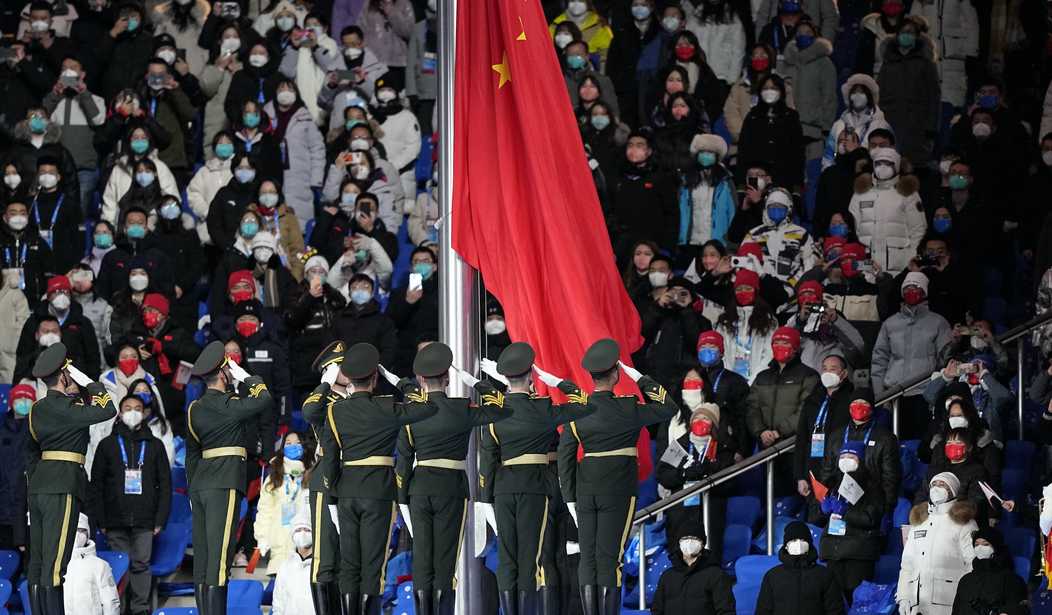This weekend’s closing ceremony in Beijing brought an end to one of the most disappointing Olympics in decades in terms of U.S. viewership and overall interest. Although NBC will not say whether it lost money broadcasting the Games, the Associated Press captured the disappointing fortnight succinctly: “These Olympics were a disaster for the network: a buzz-free, hermetically-sealed event in an authoritarian country a half-day’s time zone away…Viewers stayed away in alarming numbers, and Comcast’s NBC has to wonder whether it was extraordinarily bad luck or if the brand of a once-unifying event for tens of millions of people is permanently tainted.”
There are several reasons for the reported 42-47% decline in viewership of the Beijing Games among Americans compared to the previous Winter Olympics, including a continued pandemic response that limited in-person fan attendance and athlete interaction, as well as a maximum time-zone differential that made live viewership a challenge. That said, many Americans stayed away in protest of the authoritarian host-country’s pariah status on the world stage, particularly in areas of human rights and lack of transparency on the origins of the global pandemic that has killed close to a million Americans in two short years.
FOX News’s Laura Ingraham did a lot to drive this response nationwide, through the “Not One Minute” campaign that she rolled out on her program on January 17. Outlining Chinese President Xi’s abysmal record on the pandemic coverup and “crushing dissent in Hong Kong and committing ongoing atrocities against [China’s] ethnic Muslim minorities; the Uyghurs,” she noted, “After all this, the [Chinese Communist Party (CCP)] is going to be rewarded with a huge propaganda coup: the athletes of the world will be traveling to compete in the Beijing Winter Olympic Games on February 4. How obscene…we can't force a boycott, but we can pledge not to spend one minute watching NBC's coverage of President Xi-ocide's Olympics.”
Recommended
Ingraham connected viewership of the Games with support for American corporations’ decision to sponsor them, either directly or through TV advertising: “Every minute you watch, you put money in the pocket of those profiting off the Communist PR coup. And you all know that I love sports and we love our athletes and we celebrate them, and we're going to celebrate them upon their return. But we will respond to this hideous sellout by corporate America [in] the only language they understand: money. The corporations that have decided to sponsor the torture games like Visa, Coca-Cola, and Intel – they must hear from you.”
Republican Senator Marco Rubio went even further: “At this point, the National Broadcasting Corporation (NBC) could just as easily be named the ‘National Beijing Corporation,’” while also calling out the corporate sponsors by name: “There is no way around it – by supporting the Winter Olympic Games, Coca-Cola, Airbnb, Intel, Visa, and others are helping the CCP whitewash slavery and genocide.”
Ingraham and Rubio indeed helped drive millions of Americans to stay away from Olympics coverage, and a source close to NBC stated the obvious to the Associated Press, namely that “NBC was looking for ways to improve its deal with the International Olympic Committee [IOC] given how badly Beijing went.” Whether the network is able to negotiate a better deal with the IOC for covering future Games remains to be seen, but given the vocal, location-driven blowback the organizing body faced this year, it’s hard to see it opting to award the event to another autocratic regime with expansionist designs, as it did three times in the last 14 years (2008, 2014, 2022).
The successful calls by Ingraham, Rubio, and others to ensure NBC and other corporate sponsors pay a price for supporting the Chinese Communist Party’s Olympics to underscore the value of American consumer-driven activism in altering the behavior of our corporate leaders on the international stage. By calling out companies, sports leagues, or countries for looking the other way on actions by autocratic regimes with which they intend to do business, American consumers wield the most potent economic weapon to drive change in those countries’ behavior.
Today, fifty years to the day that President Nixon visited China to open-up relations with that country, the American economy accounts for over a fifth of worldwide GDP, and when Americans decide to vote with their pocketbooks and steer their investment away from bad actors on the world stage, that generates some of the strongest pressure imaginable. This economic pressure usually takes the form of governmental action, such as threatening to shut down the Nord Stream 2 pipeline over a possible Russian invasion of Ukraine, or steering some of our deepest-pocketed retirement funds away from investment in China. That said, the actions of ordinary Americans over the last two weeks in changing the channel away from the Beijing Olympics remind us of the power of the consumer in driving important change on matters of national security.
John Ullyot was Deputy Assistant to the President for National Security Affairs and NSC Spokesman from 2019-2021.

























Join the conversation as a VIP Member